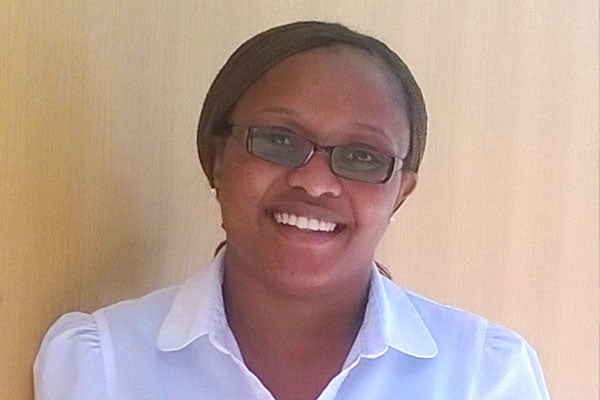
Kenyan medical resident on U of T exchange program: “My life will never be the same again”
Published: July 14, 2015
It was her first time traveling outside of Africa, and it was an experience that didn’t disappoint. Elizabeth Kagotho, a clinical pathology resident from Aga Khan University Hospital in Kenya, recently completed a two-month observership in hematological pathology at U of T.
She coordinated her visit through Rumina Musani, a professor in the Faculty of Medicine’s department of laboratory medicine and pathobiology. While working at the University Health Network and St. Michael’s Hospital, Kagotho analyzed blood samples to diagnose diseases.
Upon her arrival, Kagotho hit the ground running and learned how to use flow cytometry, a laser-based technology that characterizes blood cells in different types of diseases. This diagnostic tool is especially useful when distinguishing between different types of blood cancers.
Kagotho spoke with Faculty of Medicine writer Katie Babcock about how her training has helped her to become a better clinician and how her experience will change her work in Kenya.
What was your day-to-day experience like?
When I arrived in Toronto I started by interpreting results from the flow lab, and then I learned how to use the technology to run the samples. Every week I was assigned to a new pathologist. They would create the original report, then I would provide the diagnosis and we would then review my interpretation. It was a great one-on-one learning experience because they could give me immediate feedback on how to improve.
What have you learned from your experience as an observer?
I’ve learned many things, but I’ve really enjoyed learning flow cytometry. Aga Khan is one of the few institutions in Kenya that has a working flow cytometry machine, but we really don’t have a lot of experience with this technology. One of the main issues is that when we’re trouble shooting technical issues, we don’t really know what to do. With my experience here, I now know how to address these problems. Also, in Kenya we see one sample per week and in Toronto I saw 60 samples per day! As a result, I had the opportunity to learn from so many experts and when I go back home I’ll be the expert.
What did you enjoy most about your time in Toronto?
I was impressed with the wide variety of cases. I’ve read books and I know what certain diseases are supposed to look like, but now I’ve seen these cases in real life. Toronto has a diverse population, and it has patients with all sorts of different diseases. It also has an aging population – since my country has a lower life-expectancy, we don’t get to see some of the diseases that arise in older people.
I also enjoyed being trained by top-quality experts. Pathologists around the world use a manual called the WHO Classification of Tumours of Haematopoietic and Lymphoid Tissues. One of the pathologists here is an author of this manual, and when I met her it was like meeting a star.
How will this experience change the way you practice medicine?
When I go back home I have a lot of work to do. Most pathologists in Kenya diagnose hematological malignancies, or blood cancers, by looking at a slide under a microscope. But this method isn’t very accurate or specific. It’s important to know exactly what type of cancer you’re dealing with because that could result in a different treatment. I’m excited to use flow cytometry because it’s the gold standard for diagnosis and it can differentiate between different cancers. With the education I have received here I can effectively manage patients better in Kenya.
Why is this type of experience so important?
It’s really a global exchange of ideas. Since this program has empowered me, I will go and empower others in Africa. At the end of the day patients will receive better care and will live because of what I’ve learned at U of T. This program also counteracts brain drain – I’ll be going back to my country and will be investing in its future.
What are your next steps?
After my experience in Toronto, my life will never be the same again. Since my life has changed, I know that my future patients’ lives will never be the same either. I have a much better grasp of how to use diagnostic tools and I owe this to my time in this program.
In the future I hope to join the one-year hematological pathology fellowship program at U of T. These past two months have been amazing, and I can only imagine how one year could transform my life even more.



